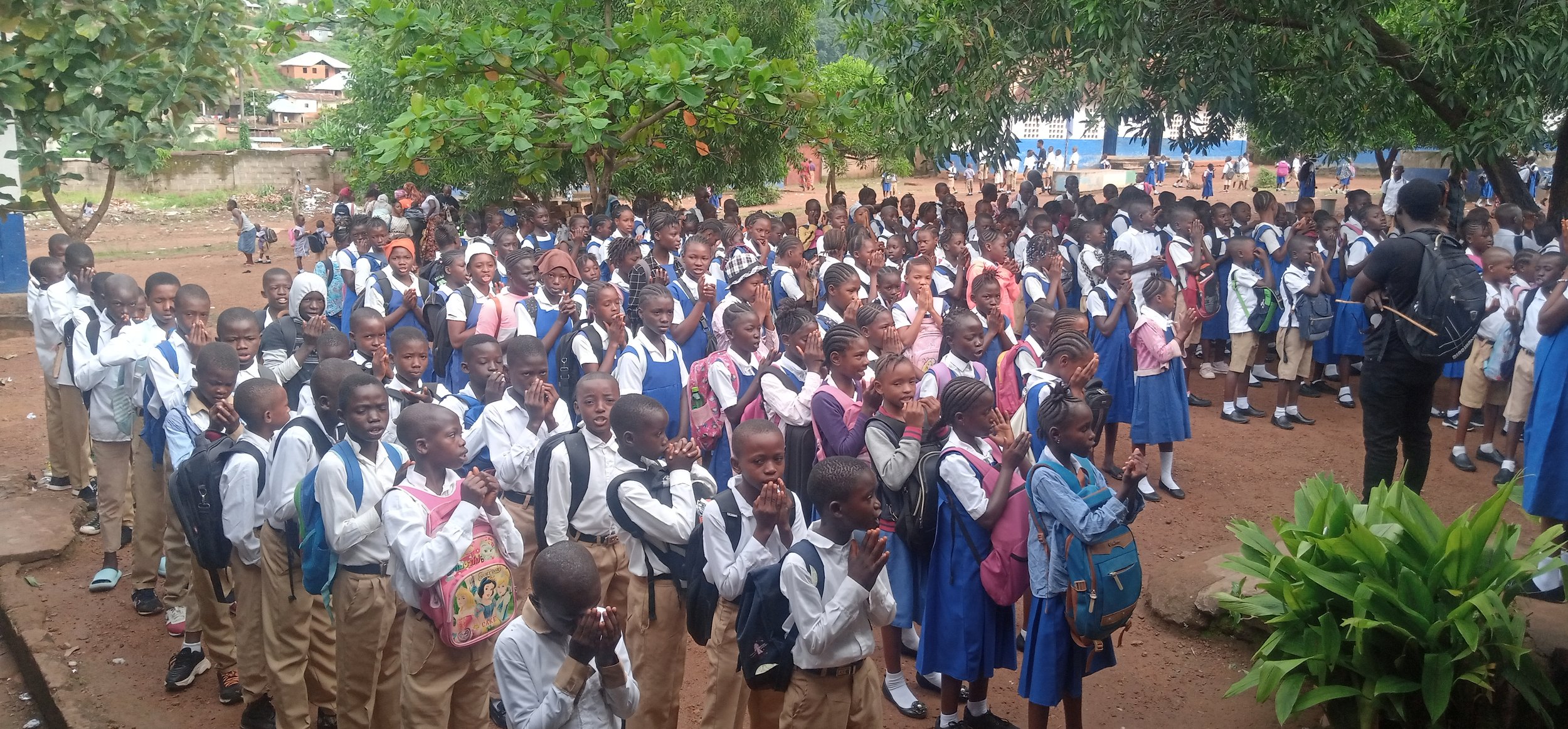
We began when one of our founders, Samuel Momoh, helped Cause Canada and 60 Million Girls set up learning centers in five rural villages in northern Sierra Leone in 2016. They hoped the centers would be self-sustaining, but without ongoing funding and technical support the centers eventually fell out of use.
Last year a few of us joined with Samuel to try to revive those centers and provide ongoing support. We replaced some failed equipment, provided a small stipend to a local village teacher to become Village Learning Center coordinator, and enrolled the schools sixth graders in an after-school program focused on arithmetic. We have a long way to go to upgrade to the most productive technology, but we have made a start.
Tools for Academic Success
Our Strategy: Core Components
-
RACHEL, (The Remote Area Community Hotspot for Education and Learning). is hardware and software developed and distributed by the non-profit World Possible. It delivers a variety of free educational content to offline communities, including Khan Academy Lite, Kolibri, and Wikipedia. RACHEL is a cost effective, self-contained, low power, information server with a large content storage disk and a rechargeable battery.
Explore the content served by RACHEL.
We build small solar systems using common technology to power RACHEL and charge the tablets that students use. -
Our success and sustainability is dependent on local support. Key stake-holders include the village chief, the school principal, teachers and parents. It is vital these actors place high value on education and be willing to offer significant time and resources. For example, they must provide facilities, run the programs and keep the equipment secure and safe.
-
World Possible (WPSL) sets up Village Learning Centers, typically in dedicated rooms in local schools. We install RACHEL content hubs with 15-50 tablets or computers and small solar systems to power them. As few organizations focus on STEM education–an important driver of economic growth–in Sierra Leone, we gear these technologies to focus on arithmetic - the STEM foundation. Our program utilizes offline Khan Academy (KA Lite) to help students in Form 6 (grade 6) master their basic math skills in preparation for their National Primary School Exam (NPSE). Eventually, we plan to expand use of this installation to apply to the entire school day for the further improvement of student literacy.
-
World Possible Sierra Leone trains at least one community teacher at each site to be a coach/coordinator. These educators set up student programs and track metrics of success as well as oversee daily recharging of the computers, troubleshoot issues, and help plan for program expansion. In addition, they are responsible for teaching others in their village to use the technology in the Village Learning Center.
-
For our first program, focusing on arithmetic, we used Khan Academy’s built-in tracking system to measure each student’s progress, lesson by lesson in each of our villages.
In addition to subject mastery, we analyze student performance on the West African National Primary School Examination (NPSE). In Sierra Leone, students take the NPSE at the end of primary school (year six). The test consists of five subject areas: Quantitative Aptitude, Verbal Aptitude, Math Achievement, English Achievement, and General Science Achievement, each being awarded a maximum score of 100. To move on to secondary school, students must score a minimum of 230/500, with better secondary schools which possess more resources, requiring a score of 275 - 300 to be admitted.
We hypothesize that Khan Academy’s mastery tracking will correlate with NPSE scores, so as students master Khan Academy modules, increases in their NPSE scores should follow.
-
The in-country director of WPSL frequently visits our Village Learning Centers to help maintain equipment, assist with Coordinators’ needs, and collect metrics to monitor the program. Local Mother’s Clubs–groups of women who come together to support their local schools–are a particularly valuable driving force in the sustainability of our programs, raising part of the funds to provide stipends for the Coordinators. We also have study abroad and internship opportunities for students interested in teaching, international development and sustainability to spend a semester teaching and learning in one of our villages.
